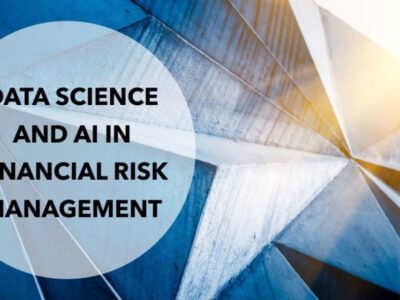In today’s fast-evolving industrial landscape, sustainability has moved from being a mere buzzword to a vital business imperative. Companies across sectors are increasingly prioritising environmental responsibility, social governance, and economic sustainability. At the forefront of this shift are industrial sustainability executives the leaders responsible for driving sustainable strategies within manufacturing, energy, and heavy industry firms.
But who exactly should organisations be hiring when it comes to industrial sustainability executives? What qualities, skills, and experiences define the ideal candidate who can successfully lead sustainability initiatives and help businesses thrive in an eco-conscious world? This blog will break down what companies should look for when hiring industrial sustainability executives and why these roles are crucial for the future of industry.
The Growing Importance of Industrial Sustainability Executives
As governments tighten regulations and consumers demand greener products, industries must adapt to survive. Industrial sustainability executives play a critical role in aligning company operations with sustainability goals, ensuring compliance with environmental laws, reducing carbon footprints, and innovating sustainable manufacturing processes.
These executives act as bridges between operational teams, regulatory bodies, and external stakeholders, translating sustainability commitments into measurable actions. Their work impacts everything from resource efficiency and waste management to employee engagement and brand reputation.
Key Roles and Responsibilities
Before identifying who to hire, it is important to understand the typical responsibilities of industrial sustainability executives:
- Strategic Planning: Developing comprehensive sustainability strategies aligned with overall business objectives.
- Regulatory Compliance: Ensuring company activities comply with local, national, and international environmental regulations.
- Stakeholder Engagement: Collaborating with government agencies, suppliers, customers, and internal teams to promote sustainable practices.
- Innovation: Leading initiatives to integrate renewable energy, circular economy principles, and green technologies.
- Reporting and Transparency: Managing sustainability reporting frameworks such as GRI or CDP, and communicating progress to shareholders and the public.
- Risk Management: Identifying environmental risks and creating mitigation strategies.
Given this broad scope, the ideal industrial sustainability executive must be a versatile leader with both technical knowledge and strategic insight.
Essential Skills and Qualifications
When hiring industrial sustainability executives, companies should prioritise candidates with a balanced mix of qualifications and competencies, including:
1. Technical Expertise in Sustainability
A strong foundation in environmental science, engineering, or a related field is essential. Many successful candidates hold degrees or certifications in sustainability management, environmental engineering, or energy systems. Practical experience with carbon accounting, lifecycle assessments, and sustainability standards is a major advantage.
2. Industry-Specific Knowledge
Industrial sectors vary widely, from heavy manufacturing to chemicals to energy production. The ideal candidate should understand the unique sustainability challenges and opportunities of the relevant industry. This sector-specific expertise enables them to devise realistic, impactful solutions.
3. Strategic Leadership and Communication
Industrial sustainability executives must be able to translate complex sustainability data into actionable strategies and communicate these effectively across all levels of the organisation. Strong leadership skills, stakeholder management, and the ability to drive cultural change are critical.
4. Project Management and Innovation
These leaders often oversee multiple sustainability projects simultaneously. Experience in managing cross-functional teams, budgets, and timelines is important. Moreover, a passion for innovation and staying ahead of emerging green technologies is a key asset.
5. Regulatory and Compliance Acumen
With ever-evolving environmental legislation, executives must stay updated on relevant laws and compliance requirements. Experience working with regulators and understanding certification schemes ensures the company remains compliant and competitive.
Traits of Successful Industrial Sustainability Executives
Beyond skills and qualifications, certain personal traits make industrial sustainability executives truly effective:
- Visionary Thinking: They must anticipate future trends and shape long-term sustainability roadmaps.
- Resilience: Driving change in traditionally conservative industries requires patience and perseverance.
- Collaboration: Building partnerships across departments and with external stakeholders is essential.
- Ethical Commitment: A genuine passion for sustainability ensures authenticity and dedication.
- Analytical Mindset: Data-driven decision-making helps track progress and justify investments.
Where to Find Industrial Sustainability Executives
Finding top-tier industrial sustainability executives can be challenging due to the specialised nature of the role. Here are some effective strategies:
- Executive Search Firms: Specialist recruiters focused on sustainability and industrial leadership can source candidates with the right expertise and cultural fit.
- Industry Conferences and Networks: Events and professional groups focused on sustainability are excellent for identifying emerging talent.
- Internal Development: Upskilling existing leaders within the organisation can ensure alignment with company culture and values.
- Academic Partnerships: Collaborations with universities offering sustainability programmes may help tap into fresh talent pools.
Why Hiring the Right Industrial Sustainability Executives Matters
The impact of hiring the right sustainability executive extends far beyond compliance. These leaders influence innovation, operational efficiency, and brand reputation. Companies with strong sustainability leadership often enjoy improved stakeholder trust, better risk management, and a competitive edge in green markets.
Moreover, as ESG (Environmental, Social, and Governance) criteria become central to investor decisions, having credible industrial sustainability executives is crucial for securing funding and meeting shareholder expectations.
Conclusion
The role of industrial sustainability executives is pivotal as industries transition toward greener, more responsible business models. Hiring the right individual means combining deep technical knowledge with strategic vision, leadership skills, and industry-specific insight.
For companies committed to sustainable growth, investing time and resources in recruiting capable industrial sustainability executives is not just good practice, it’s a necessity for future success. By identifying candidates who embody these qualities, businesses can confidently navigate the challenges and opportunities of the green industrial revolution.




Comments